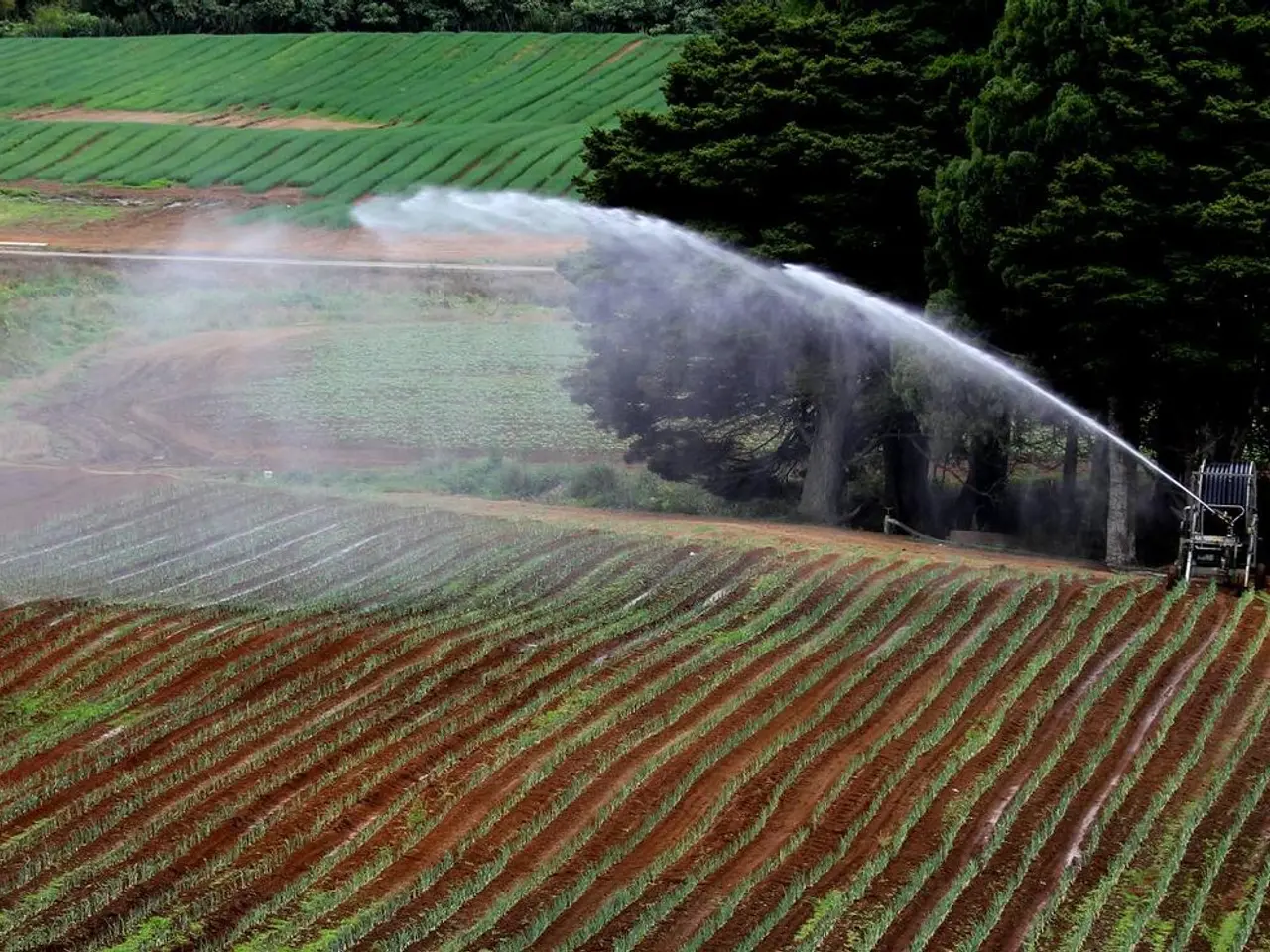Strong first quarter results for Coromandel International, marking a 49% revenue increase in FY26.
Coromandel International Limited, a leading Indian agribusiness and fertiliser company, is making significant strides in its strategic plan focused on technology-driven agriculture, strengthening the phosphate value chain, and expanding green building materials production.
Phosphate Value Chain and Backward Integration
In a move to secure a critical raw material source for phosphates, essential in fertiliser production, Coromandel has approved the acquisition of an additional 17.69% issued share capital of Baobab Mining and Chemicals Corporation (BMCC) SA, Senegal for $7.70 million. This acquisition will take Coromandel's shareholding in BMCC to 71.51%.
The company is progressing with phosphate-related projects, including phosphoric and sulphuric acid plants at Kakinada. These projects are expected to commission by Q4 FY25-26. Additionally, a new fertiliser granulation facility with a capacity of 750,000 tons is being initiated at Kakinada. These initiatives aim to secure supply chain resilience and reduce import dependence.
Technology-Driven Agriculture
Coromandel offers a diverse range of agri-solutions, including fertilisers, crop protection, bio-pesticides, specialty nutrients, organics, and nano-fertilisers. Their retail chain, Mana Gromor, reaches over 3 million farmers annually, enhancing direct farmer engagement. They have recently launched 10 new crop protection products, including in-licensed molecules and specialized formulations, strengthening their integrated crop management portfolio.
Green Building Materials Production
Coromandel has formed a joint venture with Sakarni Plaster to manufacture and market phospho gypsum-based green building materials. Phospho gypsum, an industrial by-product from their fertiliser process, is utilised to promote sustainable building material solutions aligned with environmental objectives.
New Capacity Expansions
Coromandel has announced a new sulphuric acid plant at their Visakhapatnam facility, increasing sulphuric acid capacity from 600,000 to 1.1 million metric tonnes annually. This will reduce imports and support sustainable phosphoric acid and fertiliser production.
Together, these initiatives highlight Coromandel’s holistic approach to upscale its raw material security, boost product innovation, support sustainable agricultural practices, and diversify into green building material production in line with long-term sustainability and growth objectives.
Robust Performance Across Business Segments
The Speciality & Organic, Bio, Nano fertilisers and Gromor Drive businesses delivered robust numbers. The company's Crop Protection segment sales and margins grew by 31% and 75% respectively. Coromandel is reinforcing its commitment to securing vital raw material sources and ensuring long-term supply chain resilience.
Ten new products were introduced by the Crop Protection business, including an in-licensing molecule and three 9(3) formulations. Backward integration projects for Phosphoric and Sulphuric Acid plants at Kakinada are progressing well and expected to be commissioned by Q4 of FY25-26. Coromandel has initiated groundwork for setting up a 7.5 lakh ton fertiliser granulation facility at Kakinada.
Moreover, Coromandel has signed a long-term agreement with Maaden for securing DAP shipments to India. These achievements underscore Coromandel's commitment to its strategic plan and its dedication to driving growth and innovation in the agribusiness sector.
- Coromandel's strategic plan also involves investments in the technology sector, as they have launched 10 new crop protection products, including in-licensed molecules and specialized formulations, aiming to strengthen their integrated crop management portfolio in the finance sector.
- In addition to their focus on technology-driven agriculture, Coromandel is also venturing into the field of green finance by forming a joint venture with Sakarni Plaster to manufacture and market phospho gypsum-based green building materials, thus aligning with environmental objectives and contributing to the sustainable growth of the business and technology industry.




